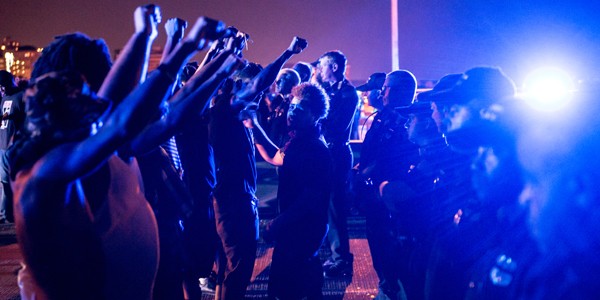 Brandon Dill
Brandon Dill
Protesters and police officers face off during the 2016 Hernando de Soto Bridge protest
A new plan from the Greater Memphis Chamber aims to align community goals from activists with business goals of local business leaders to move from “Protest to Progress.”
The plan was presented to the Memphis City Council’s Economic Development, Technology and Tourism Committee Tuesday, February 2nd. The overarching goal for the plan is for a more positive Black economic impact in Memphis.
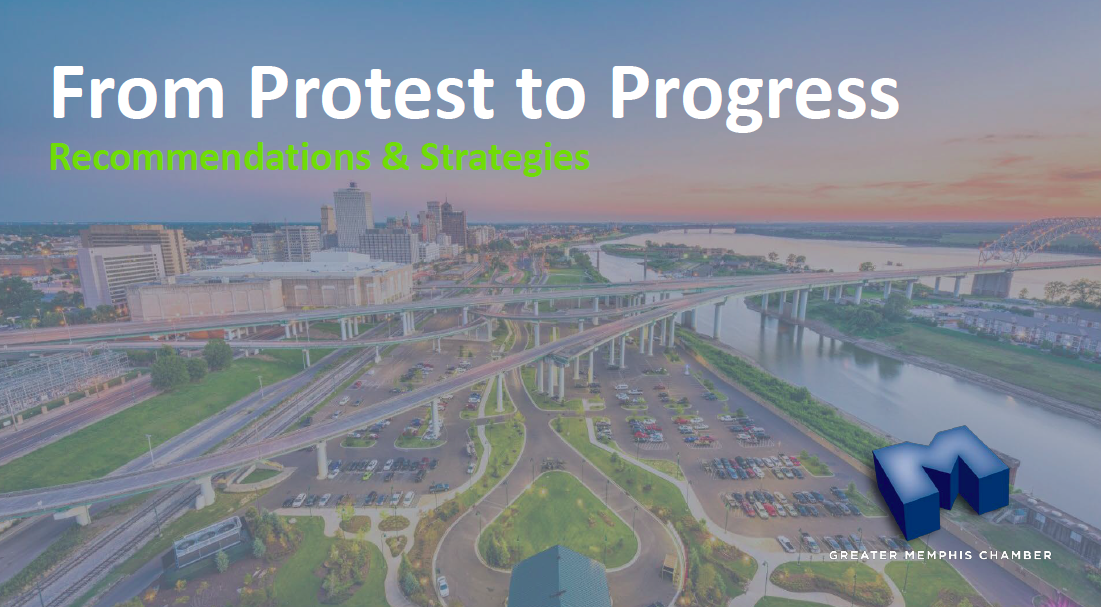 Greater Memphis Chamber
Greater Memphis Chamber
Memphis activists, clergy members, and business leaders were convened 10 days after the city’s first protest of the public killing of George Floyd in Minneapolis last summer. Chamber president and CEO Beverly Robertson told council members the original meeting gathered about 50 people and was a “powerful listening session” and that “this has never been done before.”
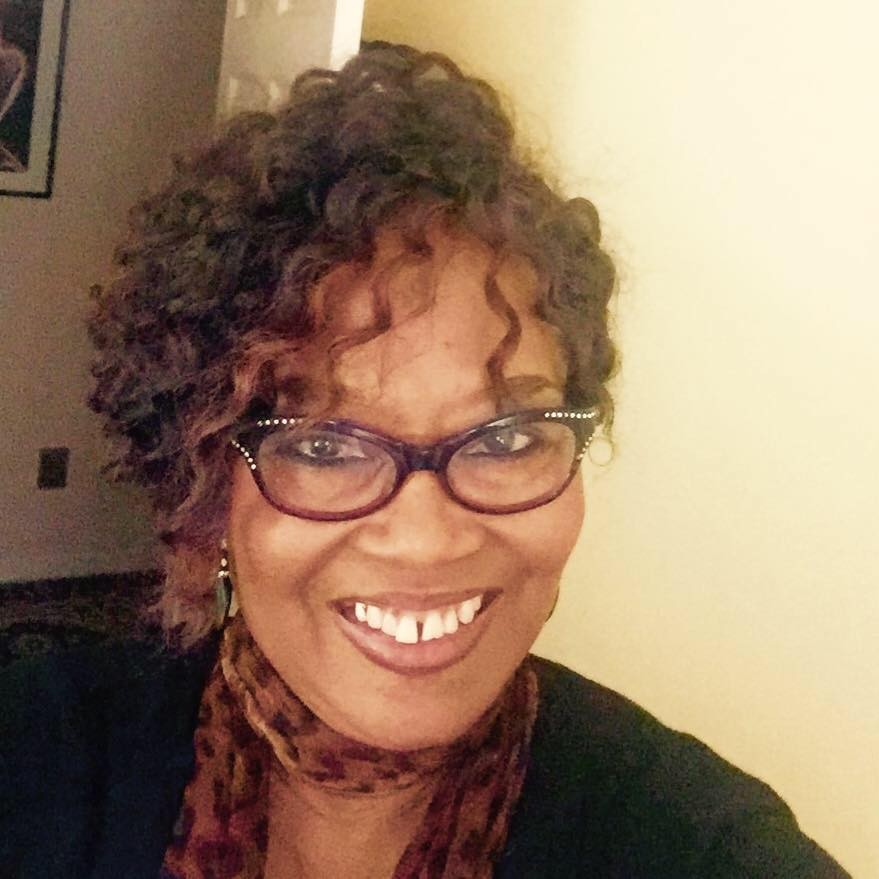 Facebook
Facebook
Robertson
Activists included in the discussions included members of Black Lives Matter, the Coalition of Concerned Citizens, Memphis Interfaith Coalition for Action and Hope (MICAH), and more. It included various clergy members from across Memphis and representatives from businesses like FedEx, Triumph Bank, November 6 Investments, and more.
“It’s important to hear the voices of activists because they are rarely heard in situations and circumstances where there can be mutual respect,” Robertson said. “I also realized that because we are charged with economic development, it is hard to attract new investment and higher-wage jobs to drive growth in cities that are rebuilding from riots and burning.
“It took us 10 years to fully recover form the past downturn of 2008. How long would it takes us to rebuild from something like burning, and looting, and breaking windows.”
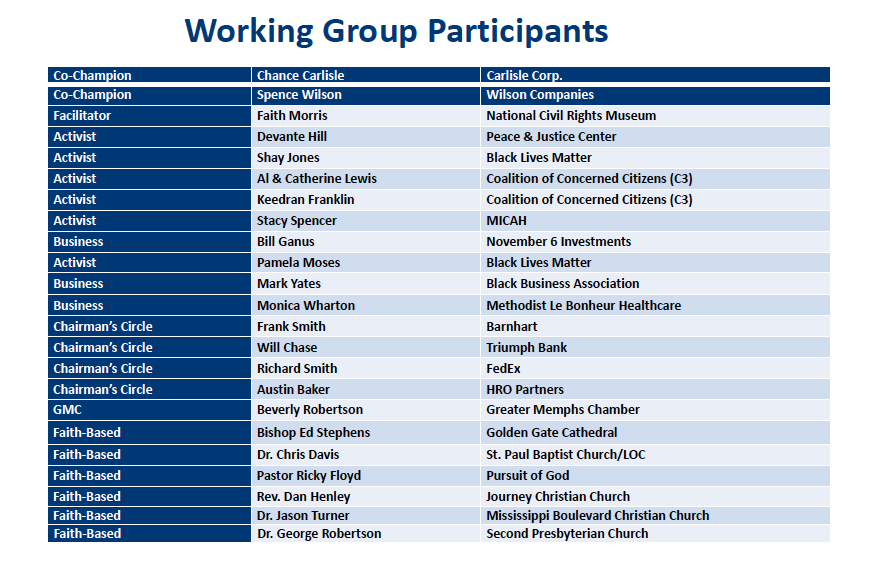 Greater Memphis Chamber
Greater Memphis Chamber
Members of the business community were quiet during the first meeting, Robertson said. But they and clergy members spoke at the second. At the third meeting of the groups, they began identifying specific issues and building frameworks for solutions. The groups focused on neighborhood investment, increased spending with minority businesses, transportation, Black entrepreneurship, living wage considerations, and Black representation on corporate and community boards.
Each of these topics were tackled by working groups. Those groups then devised strategies for improvement on each. For example, a new document from banks could show where money is being invested in Memphis, a benchmark that could show where further investment is needed. Lobbying for more funding for the Memphis Area Transit Authority (MATA) could help ease access to better-paying jobs. A Black business incubator could help Black business start-ups access capital they need to get off the ground.
Survey results from the Chamber showed a striking imbalance for Black representation on the boards for local companies. More than 82 percent of those surveyed said they now had no minority representatives on their boards. Of those companies, more than 84 percent said there were no existing barriers to consider more minority candidates.
Activists said they wanted a minimum wage standard of at least $15 per hour. A Chamber survey that included 33 companies said 64 percent of them were already paying that minimum wage. Robertson explained that many factors — like job type, benefits structure, and job geography — determine minimum wage standards and they are different across industries.
Robertson said many businesses and agencies across Memphis have committed to paying a $15-per-hour minimum wage, including FedEx, the University of Memphis, Baptist Memorial Health Care Corp., and Methodist Le Bonheur Healthcare.
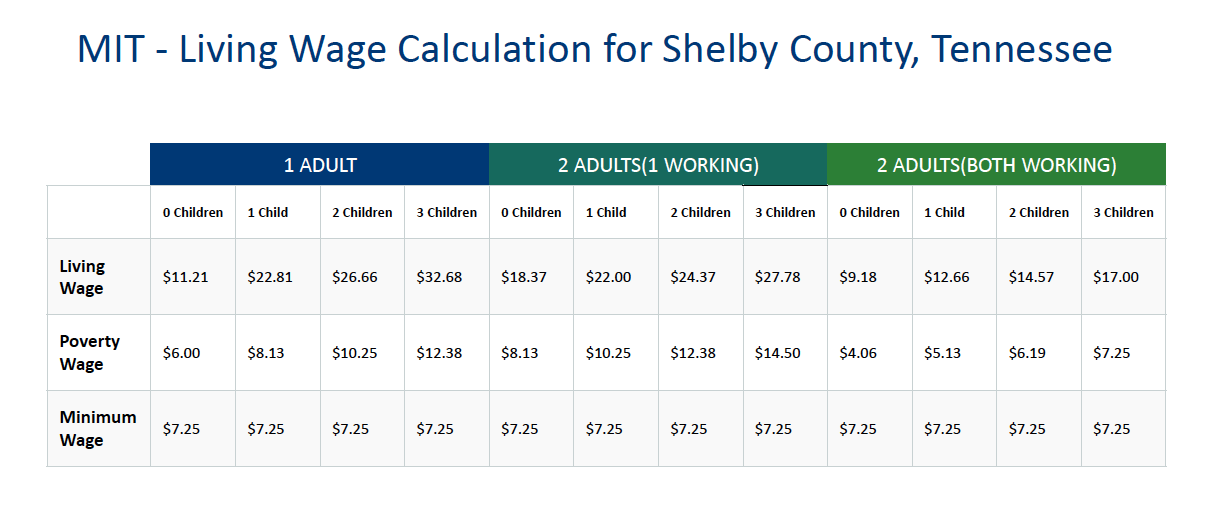 Greater Memphis Chamber
Greater Memphis Chamber
The minimum wage in Memphis remains at $7.25 per hour. Data presented by the Chamber, though, showed that a living wage in Memphis for one adult with one child is $22.81; the poverty wage for that person is $8.13 per hour, just slightly above the minimum.
This drew the ire of council member Martavius Jones, who has recently been calling for reforms of tax incentives to job-creating companies in Memphis and Shelby County. He pointed council members to data that showed the living wage for one adult with two children was $26.66 per hour.
“We are incentivizing poverty … poverty rates when we are talking about wages that are barely above poverty rates when we’re … providing incentives for businesses [that provide jobs that pay] $12 and $15 per hour,” Jones said.
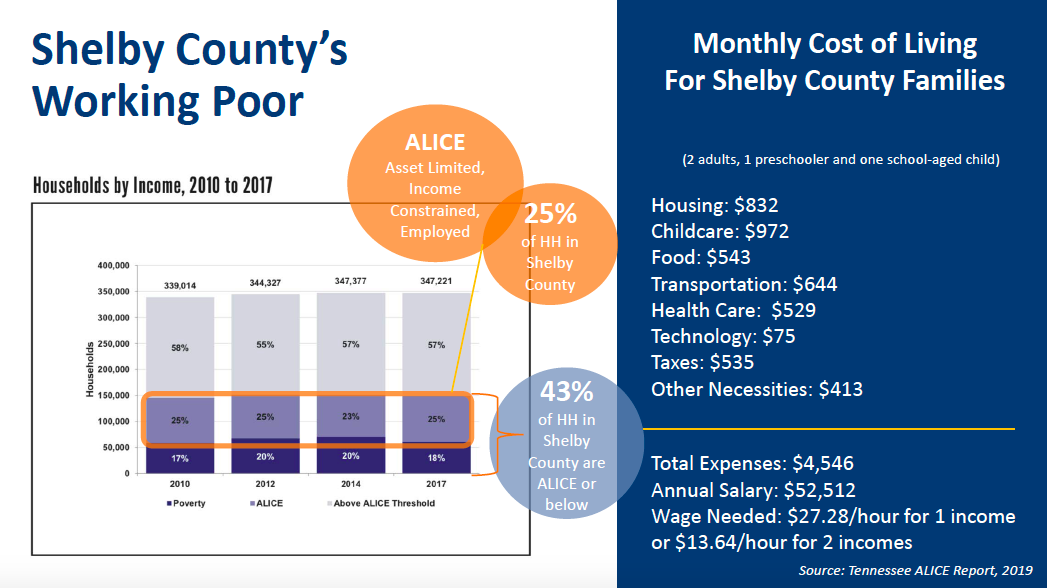 Greater Memphis Chamber
Greater Memphis Chamber
Council member Chase Carlisle, whose family has won more than $65 million in tax breaks to develop the ongoing One Beale project Downtown, warned against mandating higher-paying jobs from companies when they seek tax breaks. He said to get jobs that pay more than $15 per hour from companies, “it will take more incentives for them, not less” and asking for more would be to “tell those businesses, ‘thanks but no thanks’ and risk it.”
Robertson told council members that the Protest to Progress plan is being implemented now.